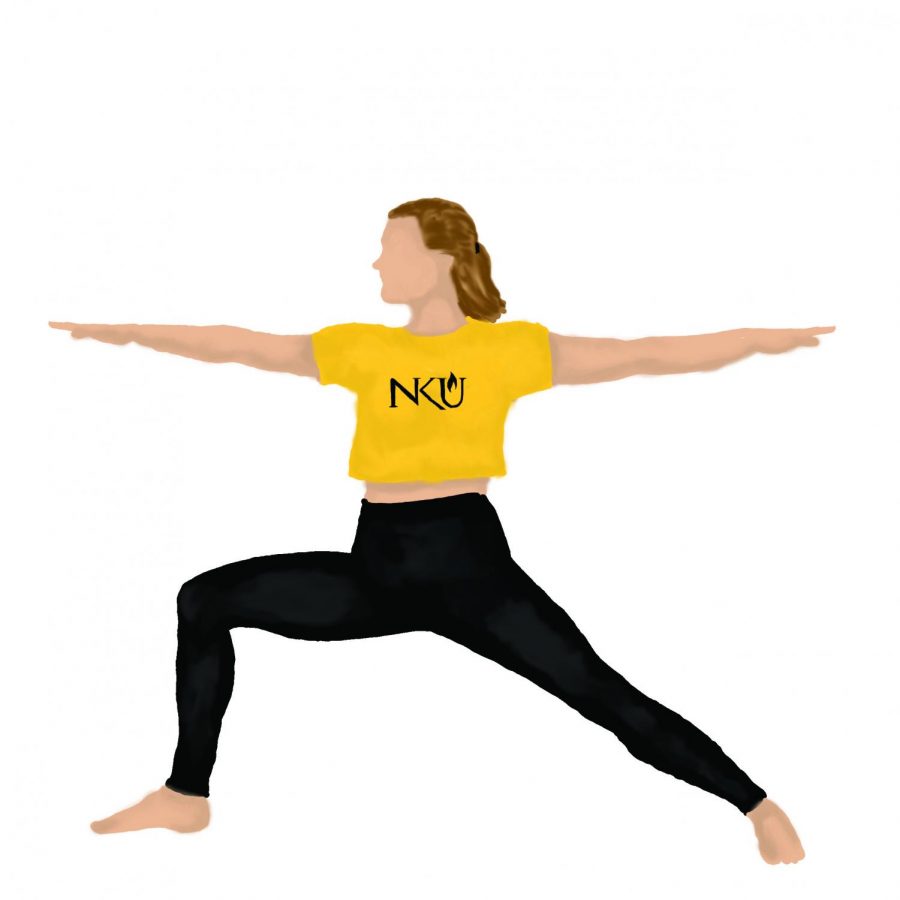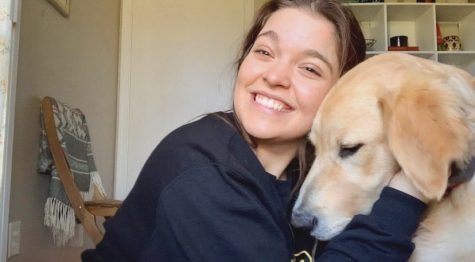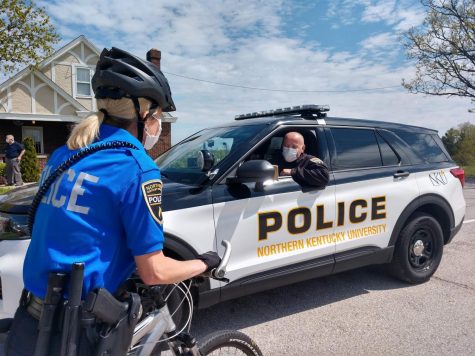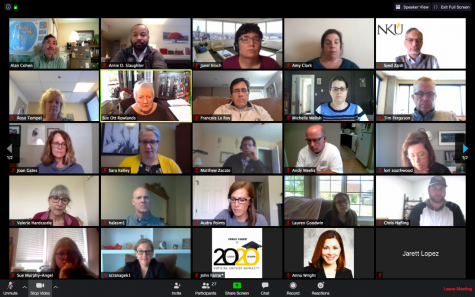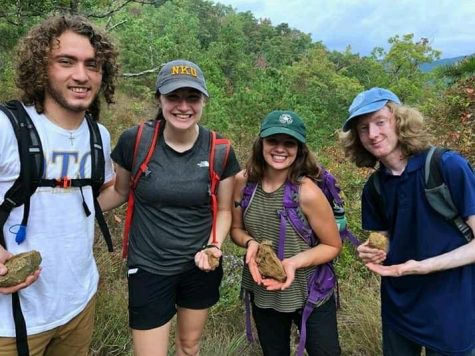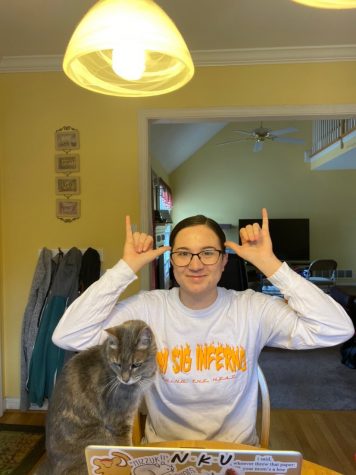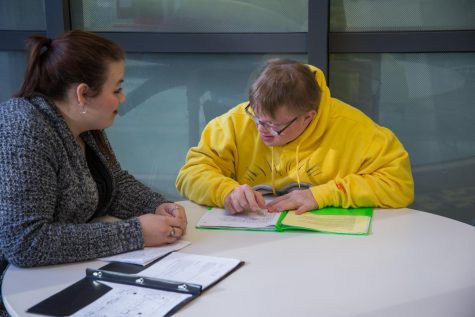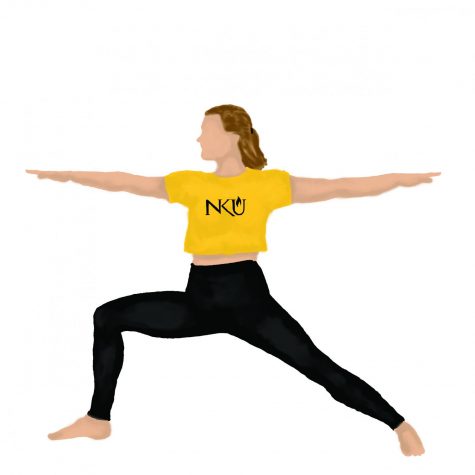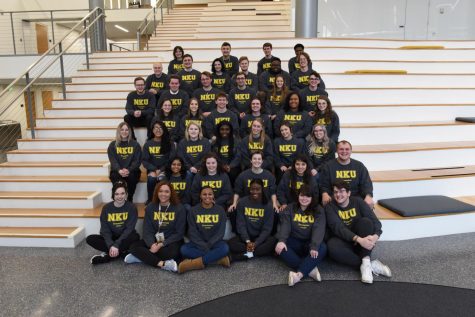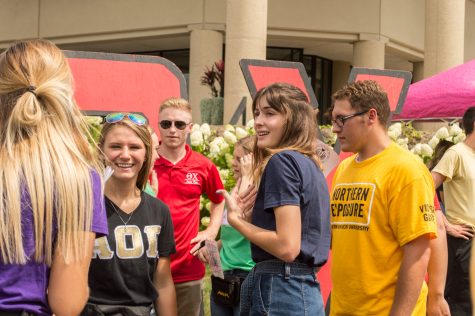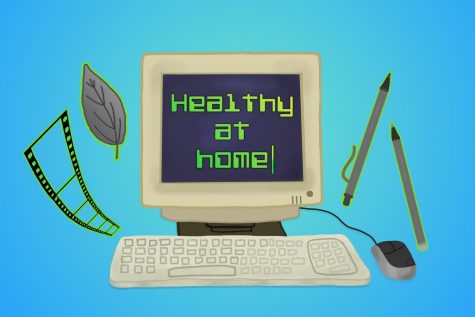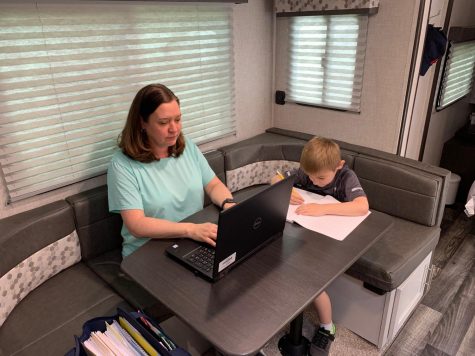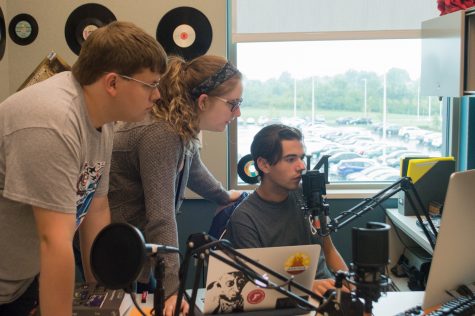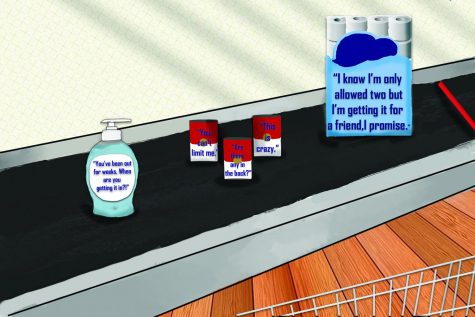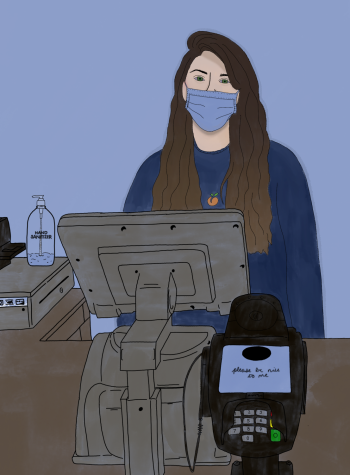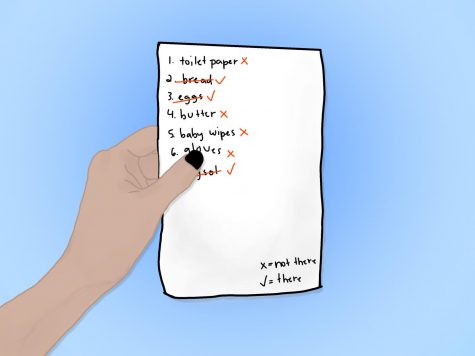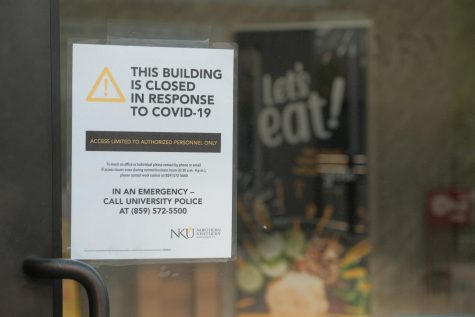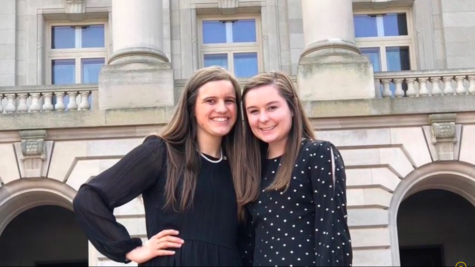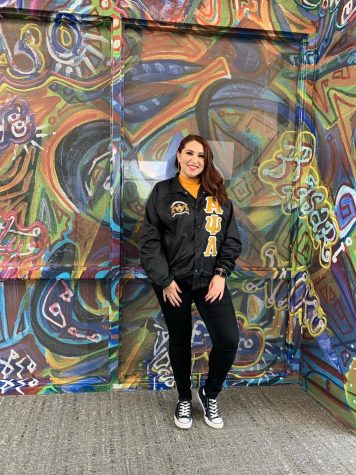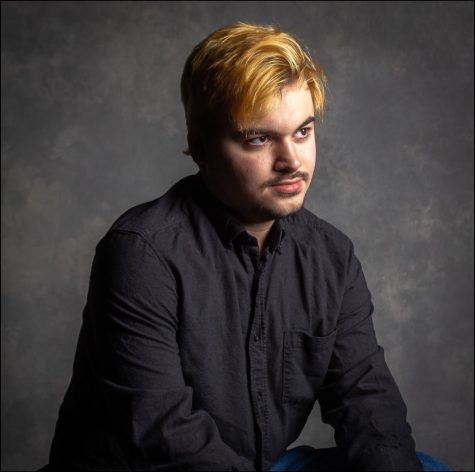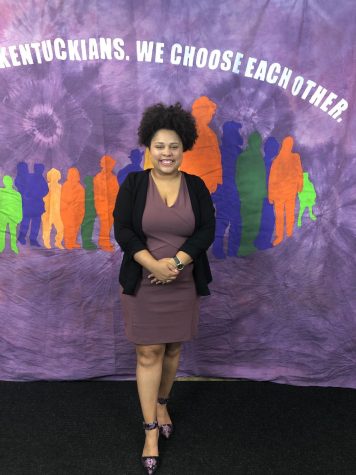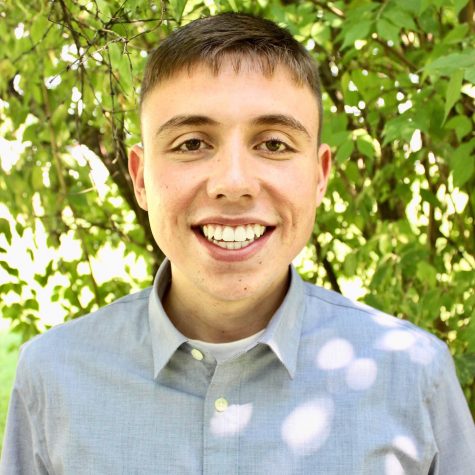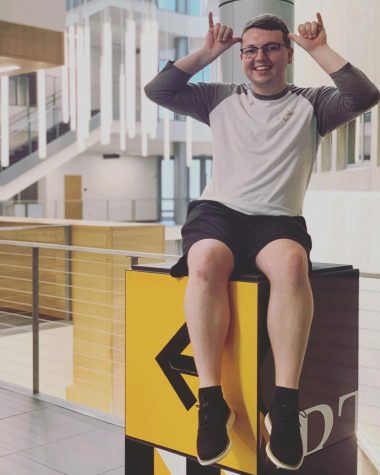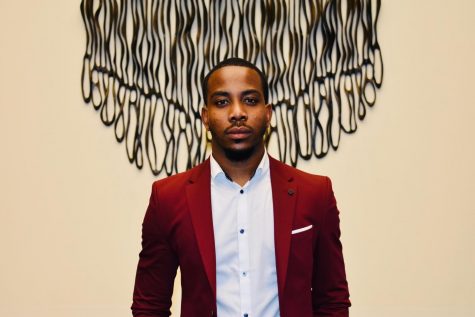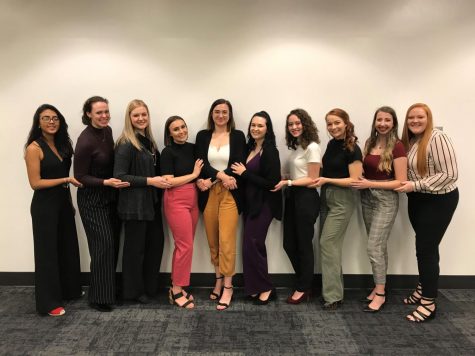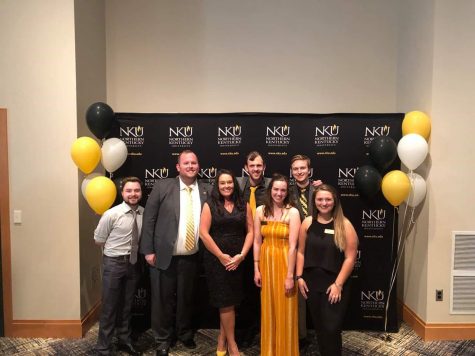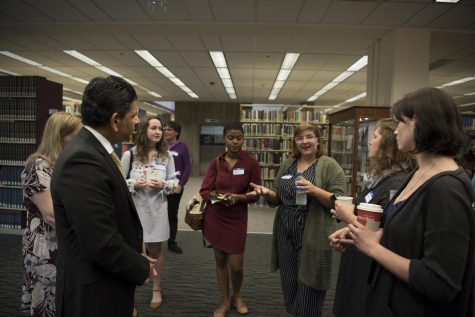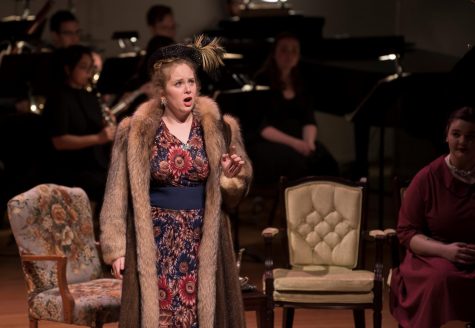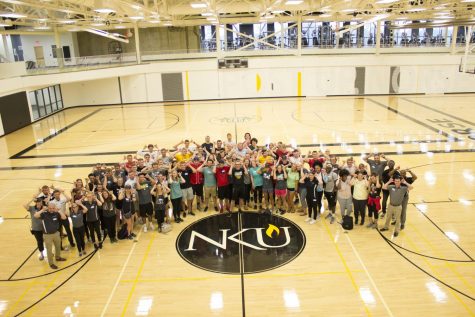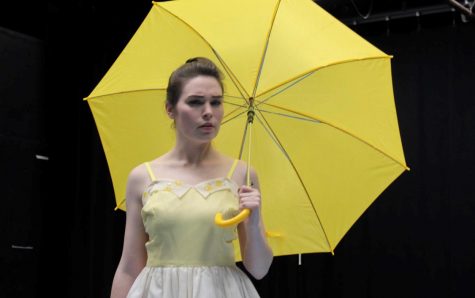Sporting season may be canceled but staying fit isn’t
An NKU athlete stretching.
NKU’s strength and conditioning team keep athletes in shape through virtual tools
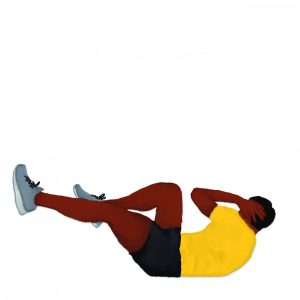
An NKU athlete doing sit ups to stay in shape.
Although no games are being played, it’s imperative that student athletes stay in shape for when they can compete.
Brian Boos, NKU’s Strength and Conditioning coach, has worked at NKU since August 2011. The main goal of this team is to develop the overall athleticism and increase athletic performance of the athlete. Boos’ team includes Travis Kleifgen and Sarah Crosby, both Assistant Strength and Conditioning Coaches, and Dr. Gabe Sanders, a sports science researcher. Strength and Conditioning works with athletic trainers as well in order to develop an athlete’s overall athleticism and performance.
“We’re still training athletes in agility work, resistance training, conditioning sessions as well, but we try to take it above and beyond that,” Boos said. “So, where the true performance side comes in is through education and helping them as best we can.”
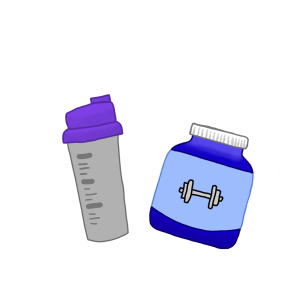
A shake tumbler and powder.
This includes nutrition. NKU athletics currently does not have a nutritionist on staff but they emphasize the importance of nutrition. The coaches educate the student athletes about timing, what they should be eating and how often and how to pick healthy choices over junk food.
Sleep training is also a part of NKU’s wellness repertoire—analyzing ways to get athletes a better night’s sleep and how much they need for mental preparation. They also focus on mental wellness by educating students on stress management.
Because of COVID-19, there is no in-person training or contact with athletes, but the department has put together creative ways of staying in touch. Along with virtual Zoom meetings and check-ins, the department uses an online program called “Team Builder.”
Team Builder allows the department to load workout programs for each team and athlete. Prior to the stay-at-home order, this program was used in the weight room in BB&T Arena. This app can be accessed on phone and tablets through the team builder app. Each athlete has an account.
“We tried to keep our workouts as normal as they would be if they were in the BB&T Arena,” Boos said. “Obviously with most commercial gyms shutting down and high school gyms all that sort of stuff our athletes probably can’t perform that. So we try to give them alternatives. The app itself allows them to see alternative workouts from them so we increased our body weight activities.”
Their main form of getting workouts to athletes has been on their social media handles @NKUStrength. Every Monday, Wednesday, and Friday, they post body weight circuits to the accounts. On Tuesday, they highlight mobility and stretching. Thursdays are special features, workouts targeting specific areas. The 20-30 minute sessions use at-home accommodations for exercises you may do at the gym.
“The way we explained it to our individuals is, you’re probably gonna feel silly doing a lot of stuff you need to but you really need to be able to do that,” Boos said.
Boos and his team stress the importance of staying active and maintaining their fitness level; what needs to be done for that varies from team to team. According to Boos, remaining creative is imperative, and some recommendations for students include FaceTime calls, group chats and encouraging one another to send post-workout selfies. This way, everyone can still feel like they’re together and connected.
“Obviously we check in on them as frequently as we can. You know, we don’t want to overload them. It’s a stressful time for everybody, obviously their health and well-being becomes most important to us.”
It’s fairly easy to fall into a habit of sleeping in all day, snacking and binge watching Netflix for five hours, but then the day is gone, Boos said. The team puts an emphasis of building schedules of the athletes and sticking to them. Incorporating accountability within this time of being isolated is important as well, according to Boos.
“Everybody’s home environment is different, but we want to make sure that they’re kind of having that accountability, relying on a lot of their teammates, flow up into the leaders of each team as well, to make sure that they’re ok. It can’t just come from us, we want it to be … no different than if you’re here on campus,” Boos said.

